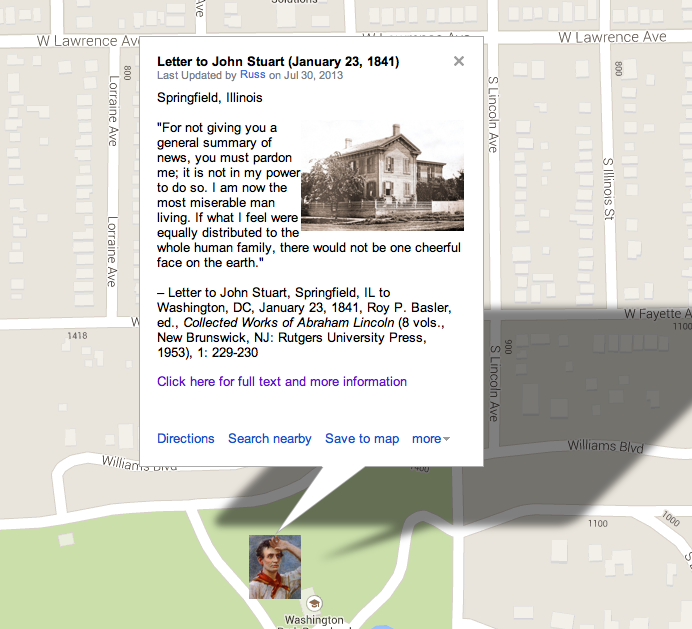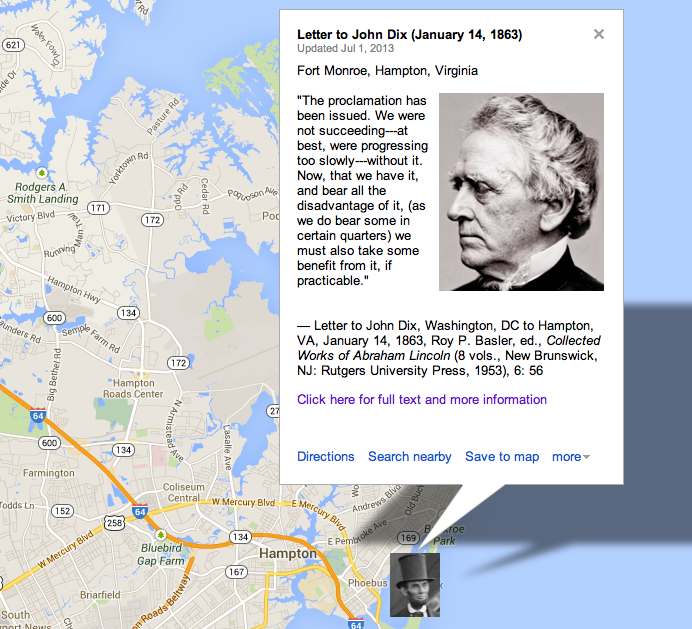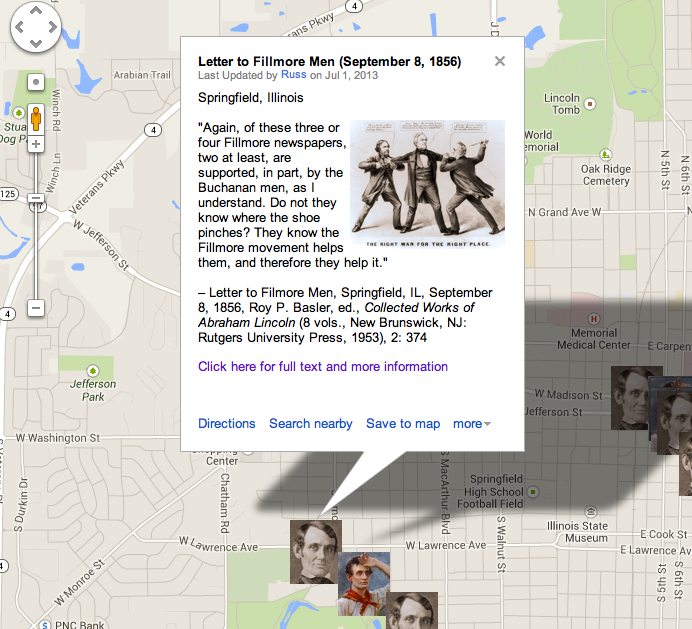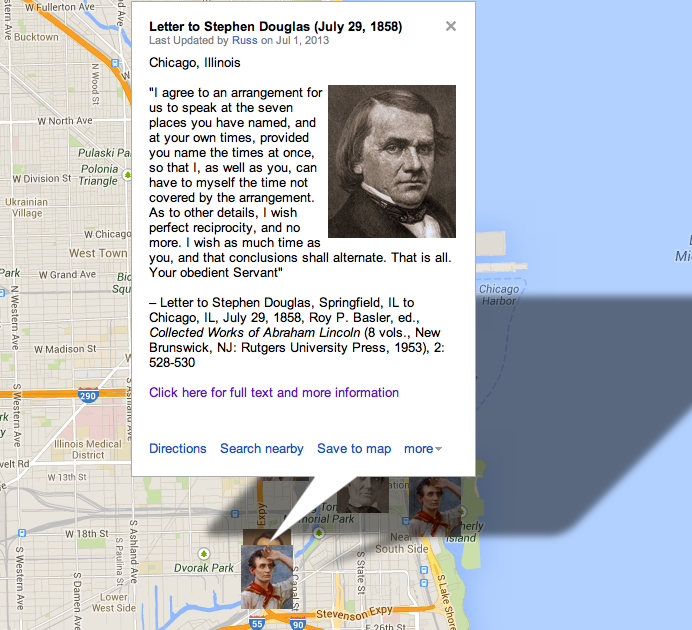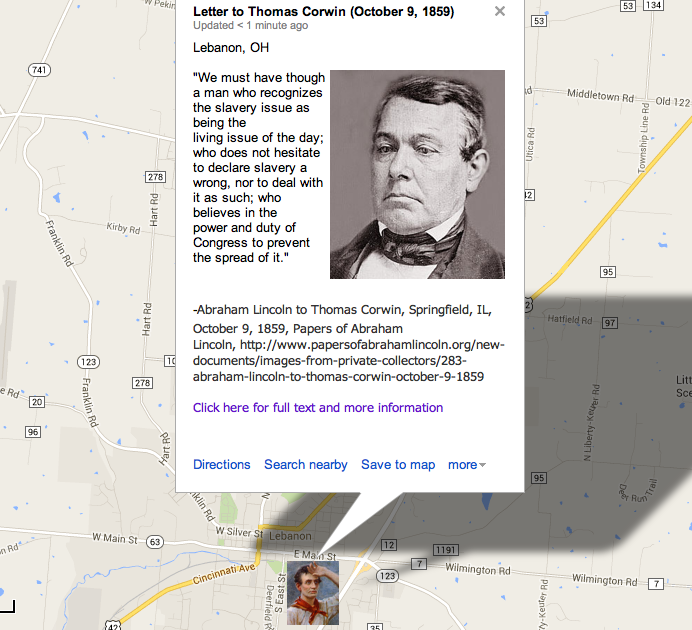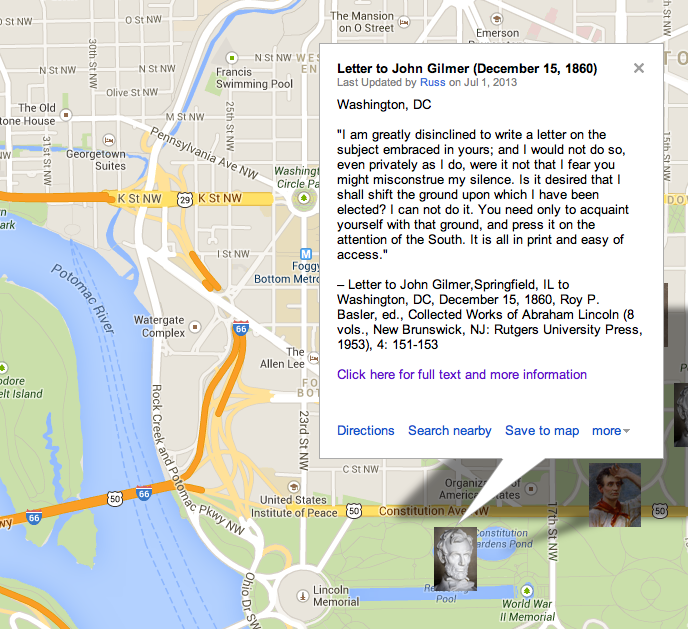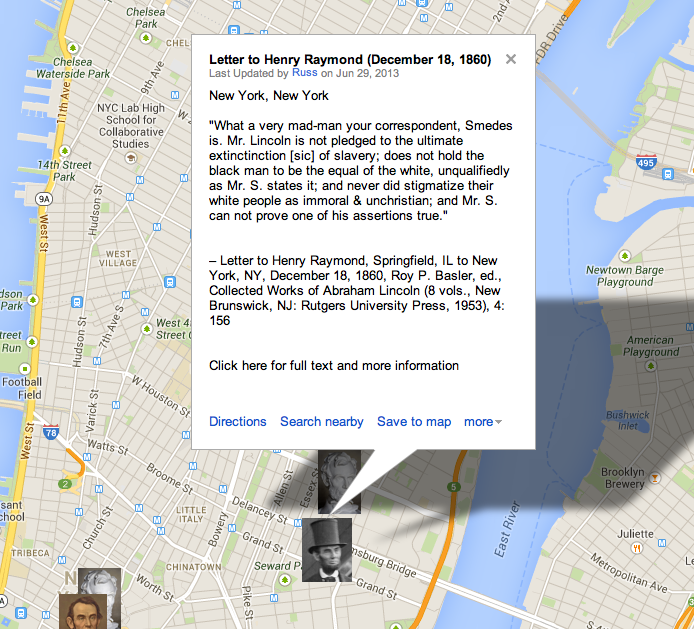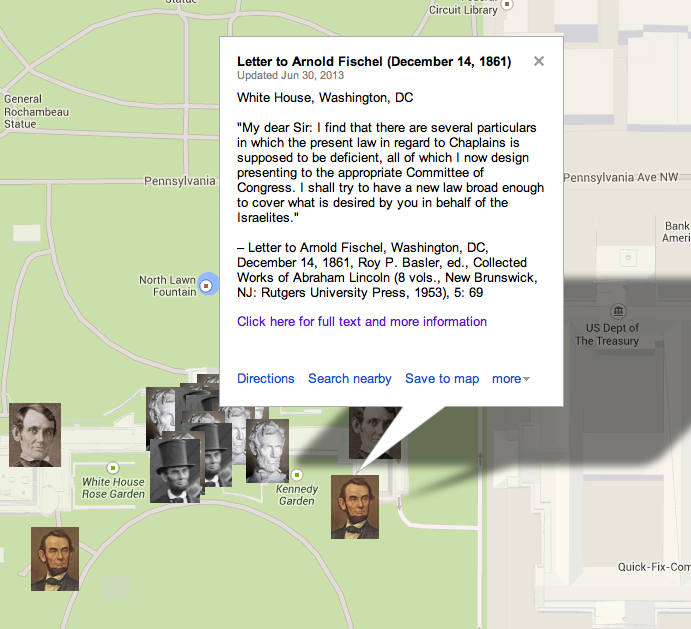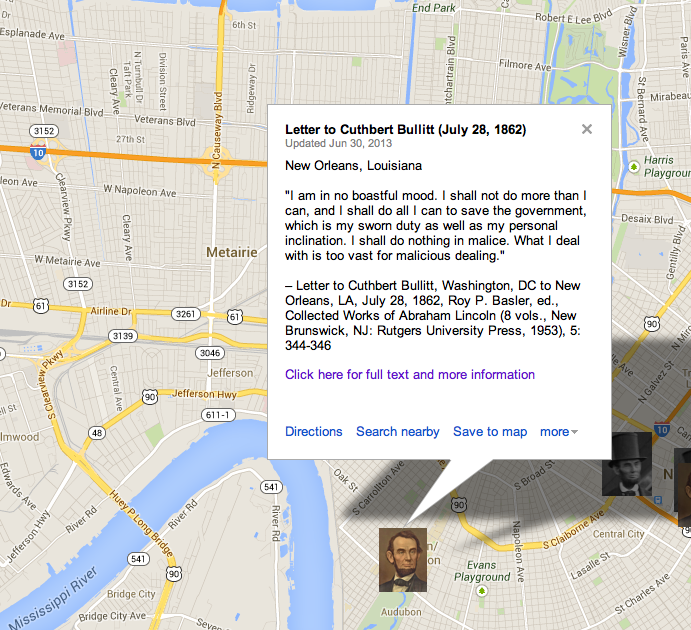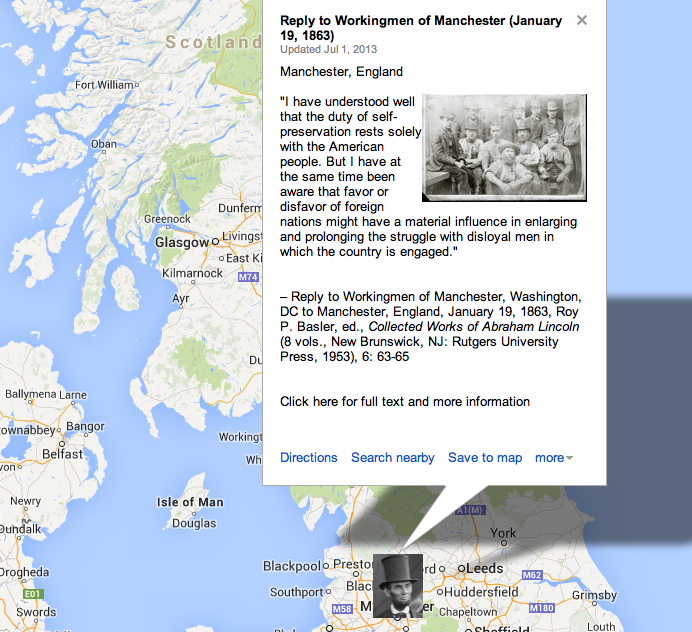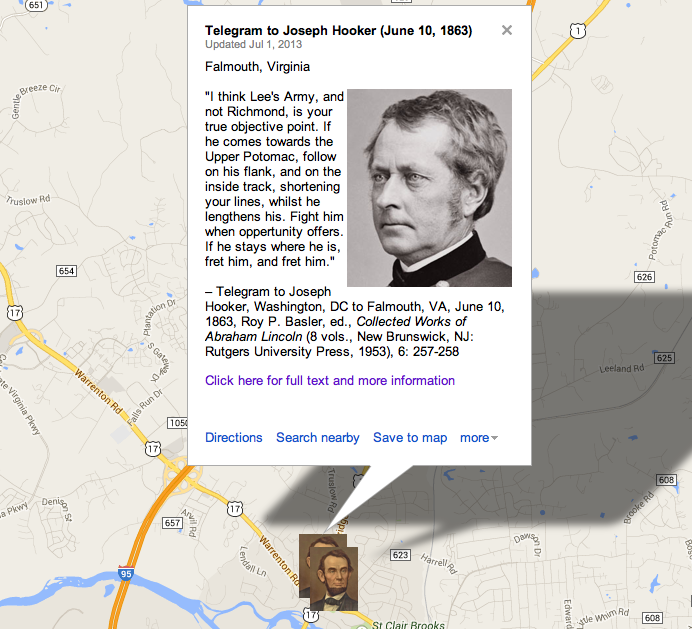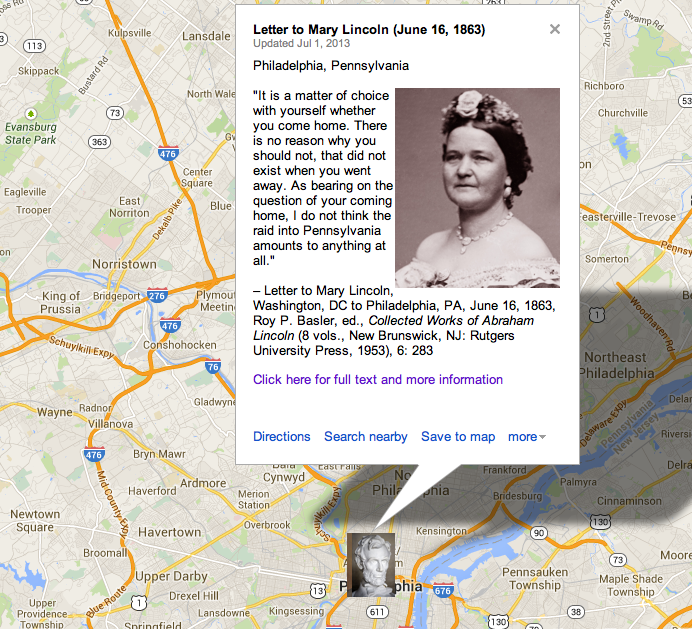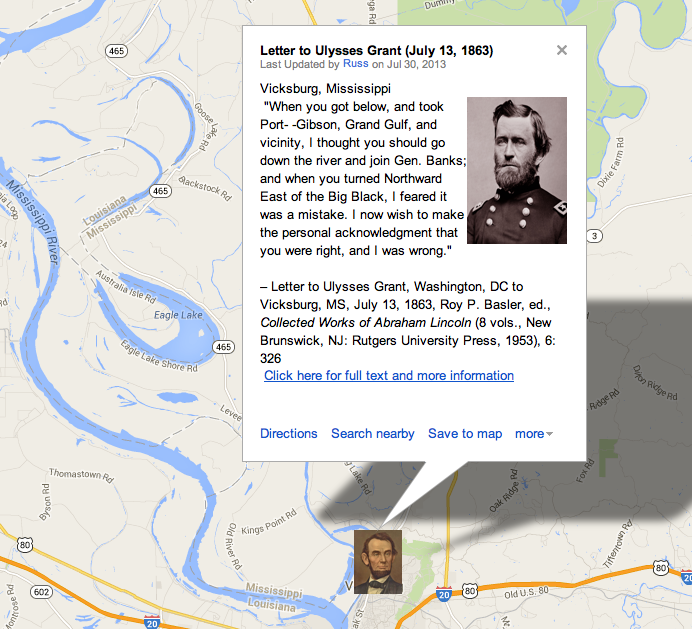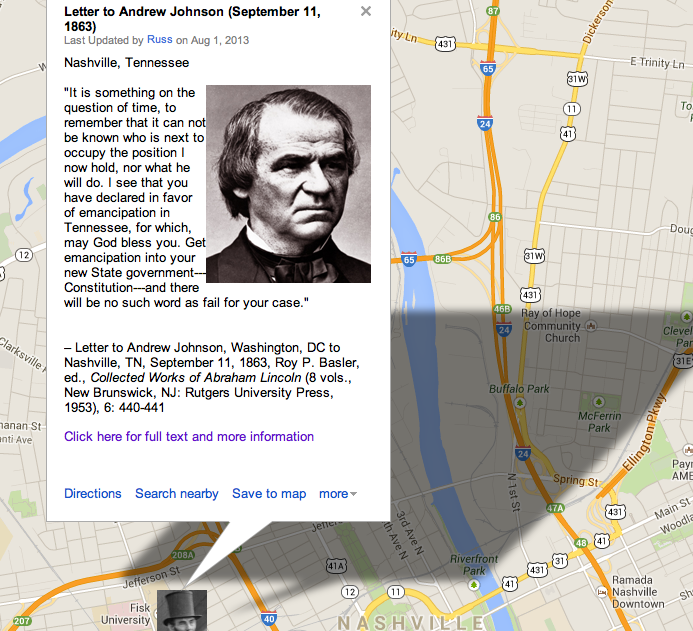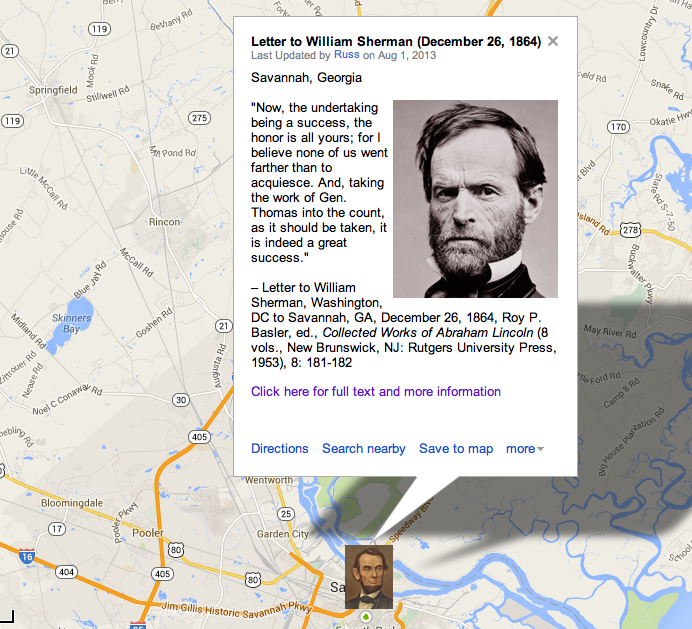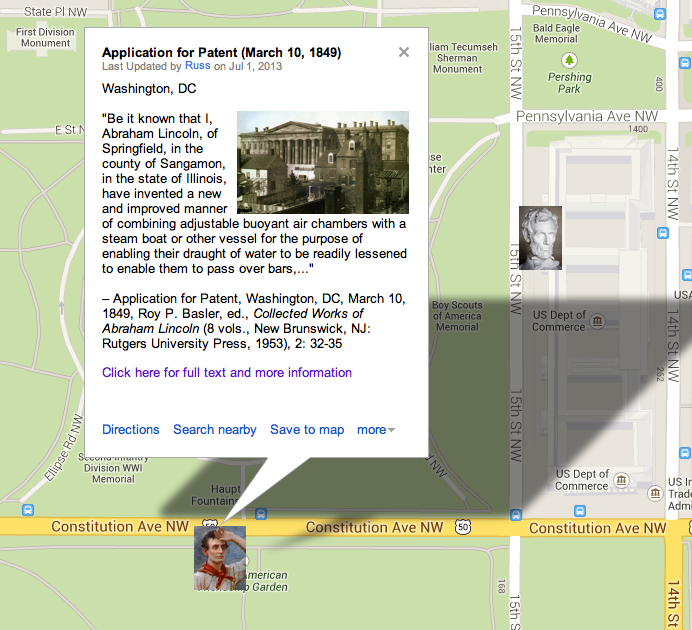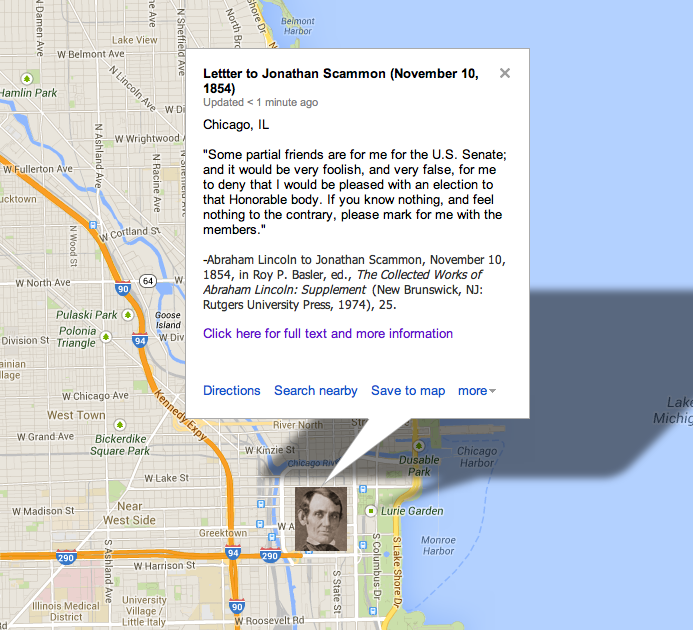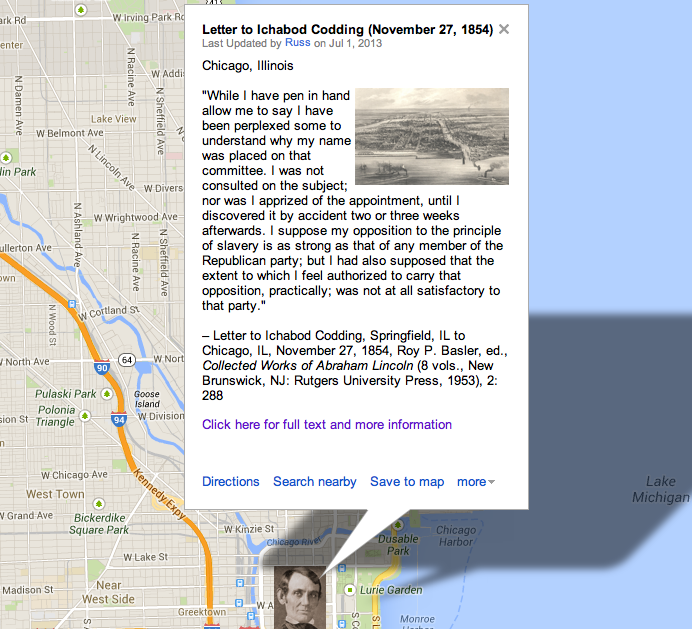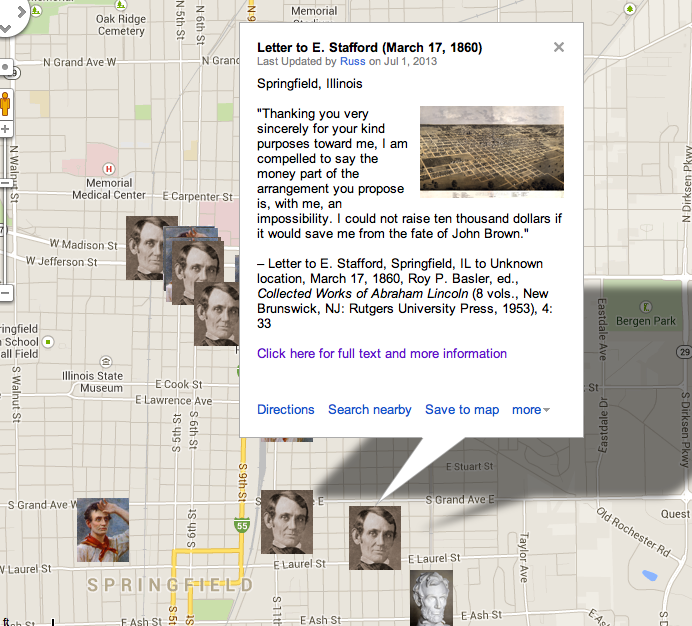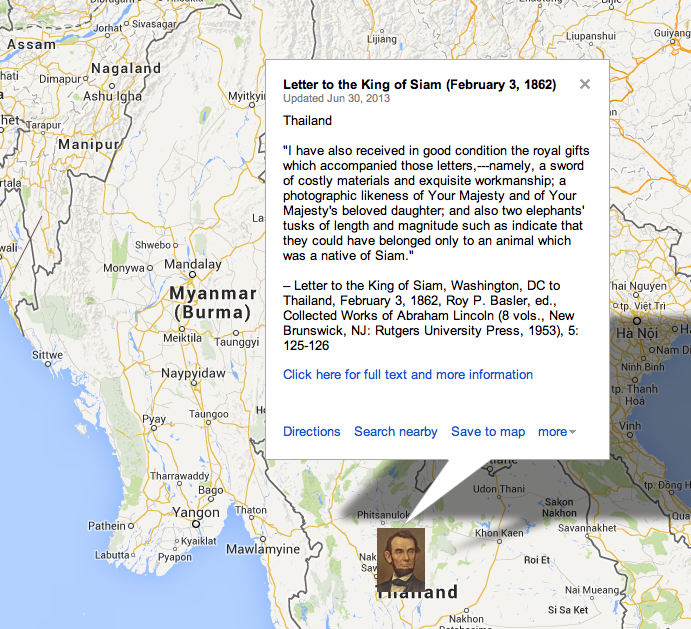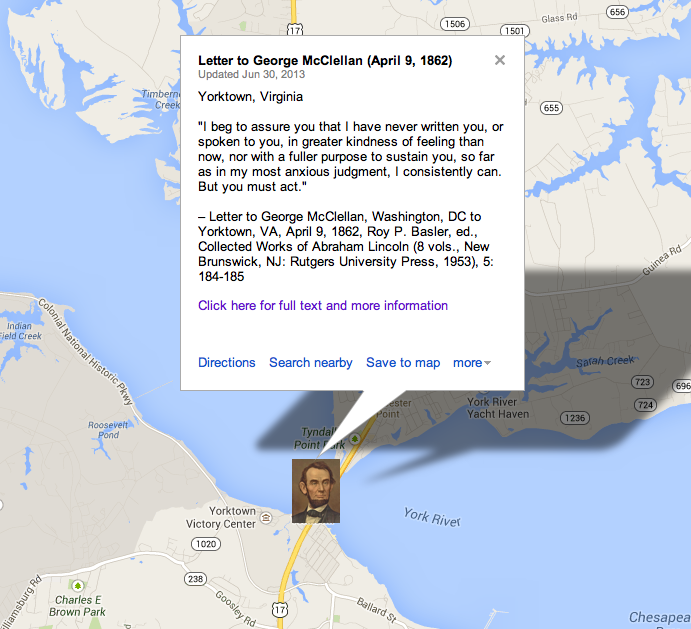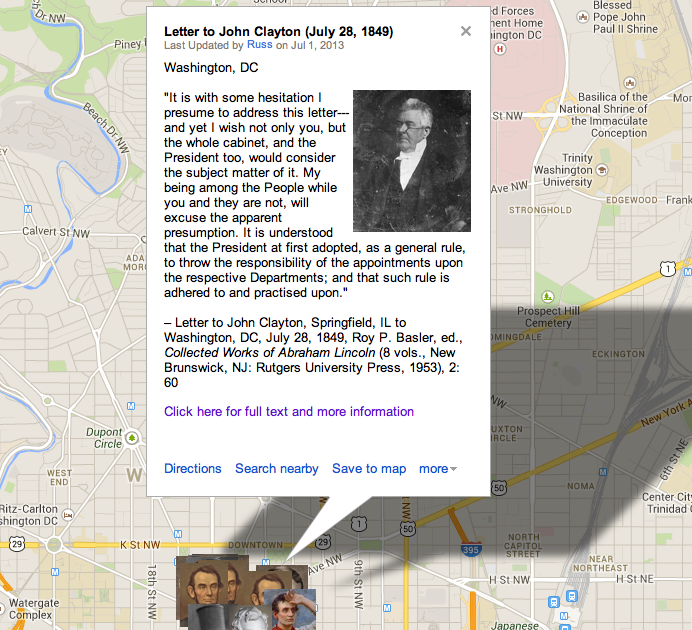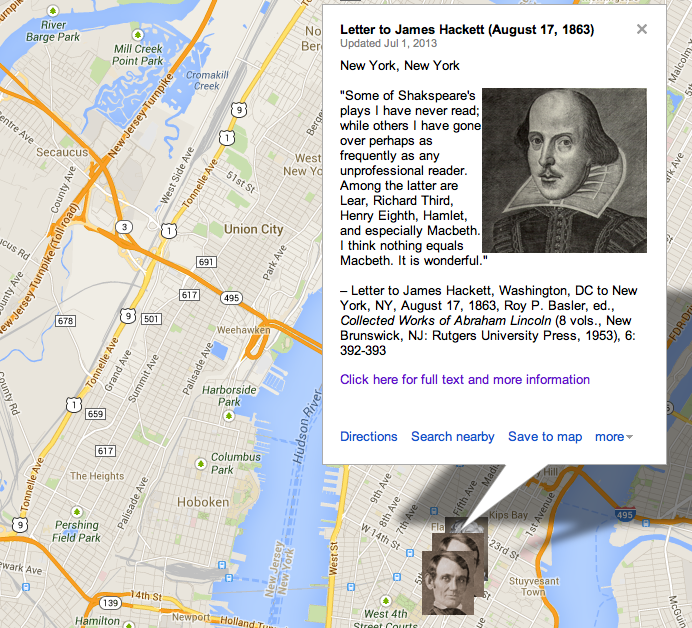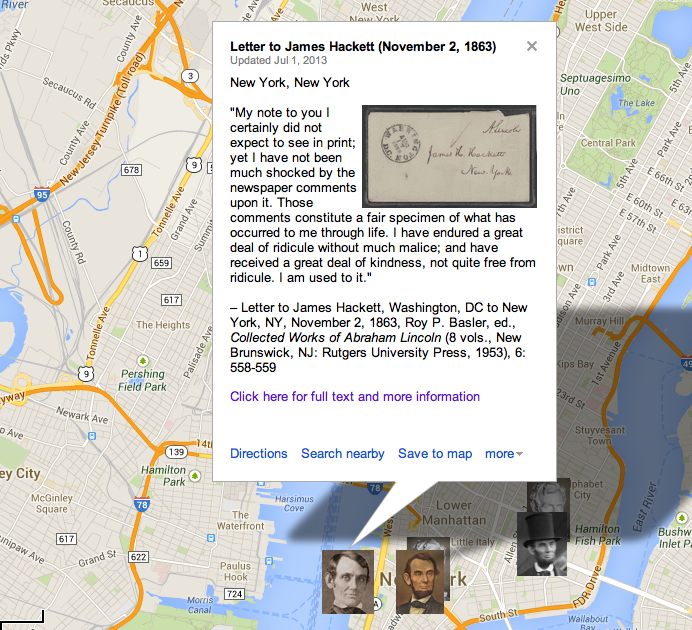Contributing editors for this page include Adam Sonstroem
Ranking
#133 on the list of 150 Most Teachable Lincoln Documents
Annotated Transcript
” …That ‘union is strength’ is a truth that has been known, illustrated and declared, in various ways and forms in all ages of the world. That great fabulist and philosopher, Aesop, illustrated it by his fable of the bundle of sticks; and he whose wisdom surpasses that of all philosophers, has declared that ‘a house divided against itself cannot stand.’ It is to induce our friends to act upon this important, and universally acknowledged truth, that we urge the adoption of the Convention System.”
On This Date
HD Daily Report, March 4, 1843
The Lincoln Log, March 4, 1843
Close Reading Videos
Lincoln Close Reading Campaign Circular from Adam Sonstroem on Vimeo.
Custom Map
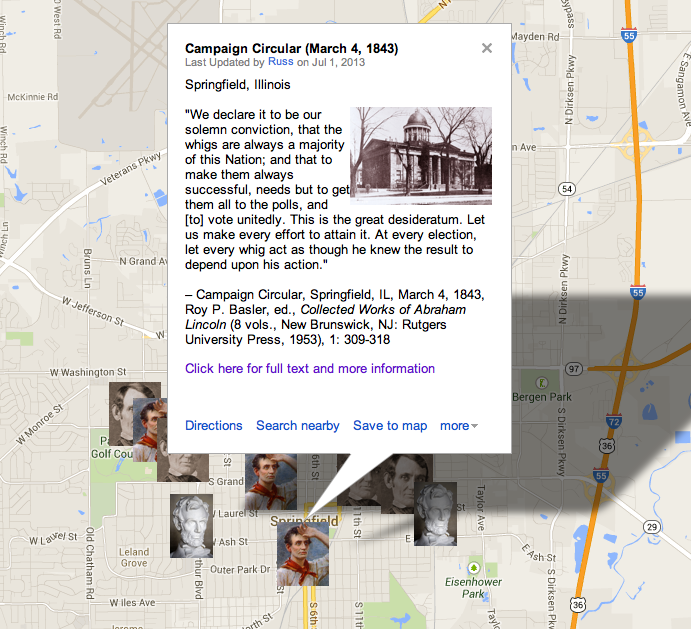
View in Larger Map
How Historians Interpret
“An 1843 campaign circular rallying Illinois Whigs to party unity shows Lincoln’s concern to educate the public in a manner consistent with both reason and revelation: ‘That ‘union is strength’ is a truth that has been known, illustrated and declared, in various ways and forms in all ages of the world. That great fabulist and philosopher, Aesop, illustrated it by his fable of the bundle of sticks; and he [that is, Jesus] whose wisdom surpasses that of all philosophers, has declared that ‘a house divided against itself cannot stand.” By quoting Aesop alongside the Bible, Lincoln shows how an ‘important, and universally acknowledged truth,’ whether its source be mortal or divine, is difficult to resist in the political realm. He therefore models the kind of moderation or temperance in speech he hopes to inspire within the temperance movement in precisely those parts of the address in which he shares his true opinion.”
—Lucas E. Morel, “Lincoln Among the Reformers: Tempering the Temperance Movement,” Journal of the Abraham Lincoln Association 20 (1999)
“Lincoln seems to have been, in decisive respects, a child of the Enlightenment, dedicated to the hope, if not the expectation, of continuous and unlimited progress. In this way, too—independent of the effects upon him of a soul searing war—he seems to have been open to Modern influences that are distantly grounded in Christian doctrines.”
—George Anastaplo, Abraham Lincoln: A Constitutional Biography (New York: Rowman & Littlefield, 2001) 348.
“Lincoln’s intense hostility toward Whig deserters was reflected in the circular’s denunciation of John Reynolds, William L. D. Ewing, and Richard M. Young, all of whom had been helped by the Whigs and who then became “perseveringly vindictive in their assaults upon all our men and measures.” Whigs must adopt the convention system, Lincoln argued, for “while our opponents use it, it is madness in us not to defend ourselves with it.” Without nominating conventions, there could be none of the party unity so essential for victory. “If two friends aspire to the same office it is certain that both cannot succeed. Would it not, then, be much less painful to have the question decided by mutual friends some time before, than to snarl and quarrel until the day of the election and then both be beaten by the common enemy?” To illustrate the point, Lincoln employed a Scriptural aphorism that he would famously reuse in 1858: “he whose wisdom surpasses that of all philosophers has declared that ‘a house divided against itself cannot stand.’”
—Michael Burlingame, Abraham Lincoln: A Life (2 volumes, originally published by Johns Hopkins University Press, 2008) Unedited Manuscript By Chapter, Lincoln Studies Center, Volume 1, Chapter 7 (PDF), 639-640
NOTE TO READERS
This page is under construction and will be developed further by students in the new “Understanding Lincoln” online course sponsored by the House Divided Project at Dickinson College and the Gilder Lehrman Institute of American History. To find out more about the course and to see some of our videotaped class sessions, including virtual field trips to Ford’s Theatre and Gettysburg, please visit our Livestream page at http://new.livestream.com/gilderlehrman/lincoln
Searchable Text
March 4, 1843
ADDRESS TO THE PEOPLE OF ILLINOIS.
FELLOW-CITIZENS: By a resolution of a meeting of such of the Whigs of the State, as are now at Springfield, we, the undersigned, were appointed to prepare an address to you. The performance of that task we now undertake.
Several resolutions were adopted by the meeting; and the chief object of this address is, to show briefly, the reasons for their adoption.
The first of those resolutions declares a tariff of duties upon foreign importations, producing sufficient revenue for the support of the General Government, and so adjusted as to protect American industry, to be indispensably necessary to the prosperity of the American People; and the second declares Direct Taxation for a National Revenue to be improper. Those two resolutions are kindred in their nature, and therefore proper and convenient to be considered together. …
…The sixth resolution recommends the adoption of the convention system for the nomination of candidates.
This we believe to be of the very first importance. Whether the system is right in itself, we do not stop to enquire; contenting ourselves with trying to show, that while our opponents use it, it is madness in us not to defend ourselves with it. Experience has shown that we cannot successfully defend ourselves without it. For examples, look at the election last year. Our candidate for Governor, with the approbation of a large portion of the party, took the field without a nomination, and in open opposition to the system. Wherever in the counties the whigs had held Conventions and nominated candidates for the Legislature, the aspirants, who were not nominated, were induced to rebel against the nominations, and to become candidates, as is said, “on their own hook.” And go where you would into a large whig county, you were sure to find the whigs, not contending shoulder to shoulder against the common enemy, but divided into factions, and fighting furiously with one another. The election came, [and] what was the result? The Governor beaten, the whig vote being decreased many thousands since 1840, although the democratic vote had not increased any….
…That “union is strength” is a truth that has been known, illustrated and declared, in various ways and forms in all ages of the world. That great fabulist and philosopher, Aesop, illustrated it by his fable of the bundle of sticks; and he whose wisdom surpasses that of all philosophers, has declared that “a house divided against itself cannot stand.” It is to induce our friends to act upon this important, and universally acknowledged truth, that we urge the adoption of the Convention System. Reflection will prove, that there is no other way of practically applying it. In its application, we know there will be incidents temporarily painful; but, after all, we believe those incidents will be fewer and less intense, with, than without, the system. If two friends aspire to the same office, it is certain both cannot succeed. Would it not, then, be much less painful to have the question decided by mutual friends some time before, than to snarl and quarrel till the day of election, and then both be beaten by the common enemy?
…Before closing, permit us to add a few reflections on [the present condition and future prospects of] the whig party. In almost all the States we have fallen into the minority, and despondency seems to prevail universally among us. Is there just cause for this? In 1840 we carried the nation by more than a hundred and forty thousand majority. Our opponents charged that we did it by fraudulent voting; but whatever they may have believed, we knew the charge to be untrue. Where now is that mighty host? Have they gone over to the enemy? Let the results of the late elections answer. Every State which has fallen off from the whig cause since 1840 has done so, not by giving more democratic votes than they did then, but by giving fewer Whig. Bouck, who was elected democratic Governor of New York last fall by more than 15,000 majority, had not then as many votes as he had in 1840, when he was beaten by seven or eight thousand. And so has it been in all the other States which have fallen away from our cause. From this, it is evident, that tens of thousands, in the late elections, have not voted at all. Who and what are they? is an important question, as respects the future. They cancome forward and give us the victory again. That all, or nearly all of them, are whigs, is most apparent. Our opponents, stung to madness by the defeat of 1840, have ever since rallied with more than their usual unanimity. It has not been they that have been staid from the polls. These facts show what the result must be, once the people again rally in their entire strength.

